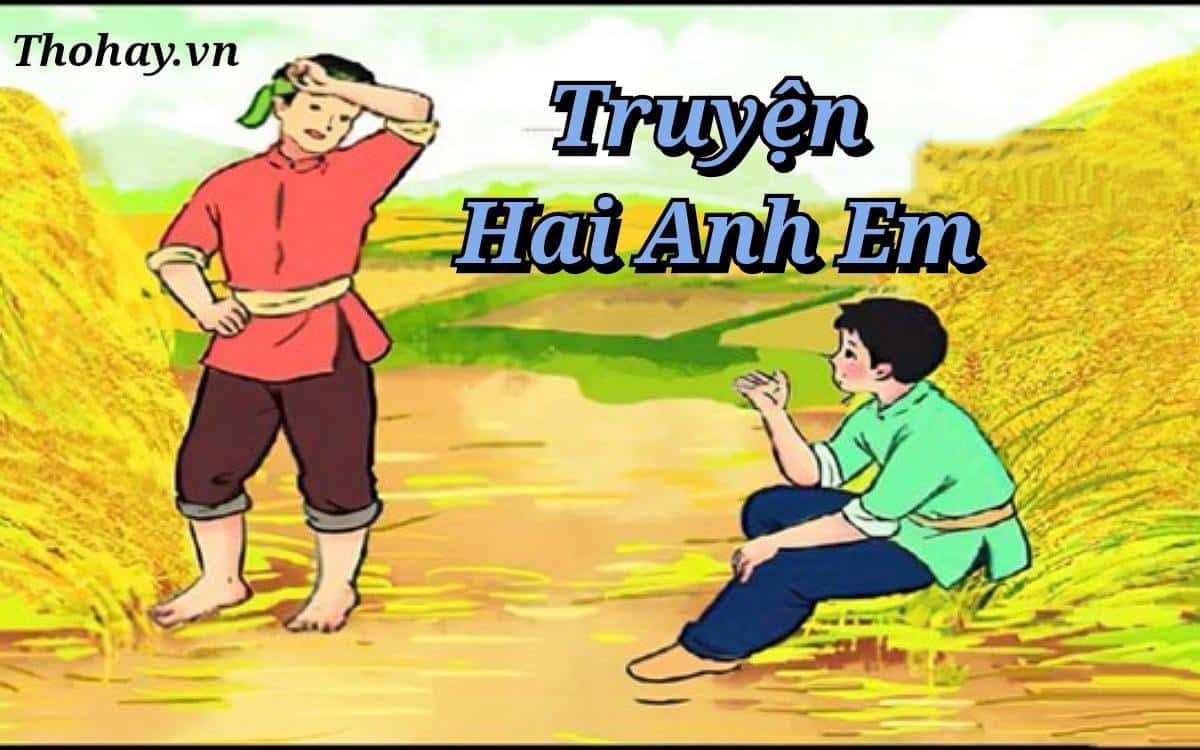Discovering "Anh Em": The Heart Of Vietnamese Kinship!
Have you ever wondered about the intricacies of familial bonds and how they are expressed across different cultures? The Vietnamese language, with its rich tapestry of kinship terms, offers a fascinating glimpse into a culture where family relationships are not just biological but also social constructs, beautifully captured in the term "anh em."
The phrase "anh em" transcends a simple translation. While it literally means "older brother and younger sibling," its scope extends beyond just brothers. It encompasses brothers only, or a brother and sister dynamic where the sister is the youngest. More loosely, it signifies siblings in general. This term, however, is just the tip of the iceberg when navigating the complex Vietnamese kinship system. Despite the elaborate network of familial titles, when discussing cousins, many Vietnamese speakers simplify things by primarily using "anh họ," "chị họ," or "em họ" – essentially, older male cousin, older female cousin, and younger cousin, respectively, irrespective of gender.
Determining whether someone is an "elder brother," "elder sister," or "younger sibling" is contingent on their relationship to the speaker's parents. For instance, if you are addressing the younger brother of the speaker's parent, the appropriate term changes. This highlights the hierarchical structure embedded within Vietnamese familial interactions, where age and seniority play a significant role in dictating the correct form of address and interaction. This respectful system is mirrored even in romantic relationships, where couples often use "anh" and "em" to signify a dynamic of older brother and younger sibling, subtly conveying respect and intimacy, regardless of their actual ages. This practice showcases how deeply ingrained these kinship terms are within the culture, extending far beyond immediate family ties.
- Uncover The Enigma Is Andrew Dymburt Married Unraveling The Truth
- Unlocking The Secrets Of Wellbeing With Annie Altman
The versatility of "anh em" is further illustrated by its use in contexts beyond blood relations. It can signify camaraderie and solidarity, akin to the English "brothers in arms" or simply "friends." Hồ Chí Minh, a pivotal figure in Vietnamese history, used "anh em" to refer to oppressed peoples, fostering a sense of shared struggle and brotherhood. This broader application of the term underscores its power to create bonds and establish a sense of belonging among individuals, even in the absence of familial connections.
| Aspect | Details |
|---|---|
| Term | Anh Em (Anh/Em) |
| Literal Translation | Older brother/Younger sibling |
| Collective Meaning | Siblings (brothers only, or brother(s) and youngest sister) |
| Loose Meaning | Siblings in general; close comrades; people sharing a common cause |
| Cultural Significance | Reflects respect for seniority and familial hierarchy in Vietnamese culture; symbolizes close relationships |
| Usage in Relationships | Used by couples to express intimacy and respect, regardless of actual age difference. |
| Usage Beyond Family | Symbolizes comradeship, solidarity among people with shared goals |
| Translations | Brother, brothers, brothers and sisters, siblings, comrades, friends |
| Examples in Sentences | "Bao năm qua ta đã có nhau tình anh em mãi không nhạt phai" (For many years, we've been together, our brotherly love never fades)."Anh em ta bánh đa, bánh đúc" (We are brothers, sharing everything, even simple food). |
| Related Kinship Terms | Anh họ (older male cousin), Chị họ (older female cousin), Em họ (younger cousin) |
Consider the phrase, "Anh em ta bánh đa, bánh đúc." It speaks to the shared experiences and solidarity among "anh em," even in times of scarcity. Similarly, the lyrics, "Bao năm qua ta đã có nhau tình anh em mãi không nhạt phai dù cho bao khó khăn tình anh em vẫn luôn bền vững," resonate with the enduring strength of brotherly love, unwavering in the face of adversity. These examples demonstrate the depth and emotional weight carried by the term "anh em" within the Vietnamese language and culture.
However, navigating this system requires careful attention to context and social cues. In formal situations, relying solely on "anh" and "em" might be inappropriate. Instead, more specific terms based on the perceived age of the person being addressed are preferred. This nuanced approach underscores the importance of understanding the social dynamics at play and demonstrating respect for the other person's position within the social hierarchy.
- Unveiling Gloria Govan A Journey Of Empowerment Style And Success
- Unveiling The Life And Legacy Of Fred Hurt An Obituary That Explores Untapped Stories
The translation of "anh em" into English often falls short of capturing its full essence. While "brother," "brotherly," "fraternal," "brothers," and "brothers and sisters" are common translations, they often lack the cultural and emotional resonance embedded within the Vietnamese term. The use of "siblings" is a closer approximation but may still not fully convey the sense of camaraderie and mutual support implied by "anh em."
The phrase crops up in various contexts. Consider "Bánh anh em is currently open with a limited menu and limited hours, but a full rollout is on April 18." Here, the name itself suggests a collaborative effort, a venture built on the foundation of "anh em." Or reflect upon the historical reference: "Việc đó xảy ra mười bảy năm trước khi hai anh em Wright bay thử lần đầu" - that happened seventeen years before the Wright brothers flew for the first time. Even in this translated sentence, the significance of the Wright brothers' familial bond is highlighted.
Beyond literal translations, the spirit of "anh em" finds echoes in concepts like kinship, camaraderie, and solidarity. It speaks to the deep-seated human need for connection and belonging, transcending cultural boundaries. Whether it's the bond between biological siblings, the loyalty between close friends, or the shared purpose of a community, the essence of "anh em" resonates with the universal human experience of connection and shared humanity.
In everyday conversation, "anh" and "em" are frequently used in conjunction with polite expressions. For example, "Cảm ơn anh / em vì một buổi tối tuyệt vời!" (Thank you for a lovely evening!) or "Chúc anh / em ngủ ngon!" (Good night!). Even a simple offer, "Anh / em có muốn vào nhà uống một ly cà phê không?" (Would you like to come in for a cup of coffee?), utilizes these terms to foster a sense of warmth and familiarity.
Within the broader context of Vietnamese language learning, understanding the nuances of "anh em" and other kinship terms is crucial for effective communication and cultural sensitivity. It's not just about knowing the literal translation; it's about comprehending the social and cultural implications behind these words. By embracing the richness and complexity of the Vietnamese language, we can gain a deeper appreciation for the values and traditions that shape Vietnamese society.
The cultural weight of "anh em" stretches further. It is often invoked in popular culture. The lyrics "Top bài hát về anh em của những bộ phim mới đây 2019" and "Phim và chương trình bản quyền và độc quyền từ anh em phim, tốc độ nhanh, không quảng cáo. Xem mọi lúc, mọi nơi với chất lượng 4k." show that "anh em" is a prevalent concept in music and film, and is used in common parlance. Similarly, the reference to "anh em kết nghĩa, giang hồ" underscores the term's association with loyalty and camaraderie, even in less conventional social circles.
Even idioms and folk sayings reflect the significance of "anh em" in Vietnamese culture. "56 câu ca dao châm biếm về cuộc sống, phụ nữ và đàn ông mang ý nghĩa sâu sắc ca dao tục ngữ về anh em xã hội" highlights how folk wisdom often touches upon the themes of brotherhood and social connection. These sayings, passed down through generations, serve as reminders of the importance of familial bonds and the shared values that bind Vietnamese society together.
Ultimately, "anh em" is more than just a phrase; it's a reflection of Vietnamese culture's deep-rooted emphasis on family, respect, and social harmony. It's a reminder that even in a rapidly changing world, the bonds of kinship and camaraderie remain essential to the human experience. Understanding the nuances of this term offers a valuable window into the heart of Vietnamese culture and the values that shape its identity.
- Uncovering The Tragedy Inside Joyce Dahmers Death And Its Haunting Legacy
- Unveiling Jake Shears Net Worth Surprising Revelations And Financial Wisdom

Những bức hình ảnh anh em anime thân thiết và đầm ấm

600+ Hình Ảnh Anh Em Xã Đoàn Cực Chất, Đẹp Nhất 2024

Bộ Sưu Tập hình ảnh anh em Cực Chất Full 4K Hơn 999+ hình ảnh